Illiteracy is a worldwide crisis. It affects you. And me.
When men, women, and children cannot use printed and written information to function in society, achieve their goals, and develop their knowledge and potential, every single human on the planet is impacted.
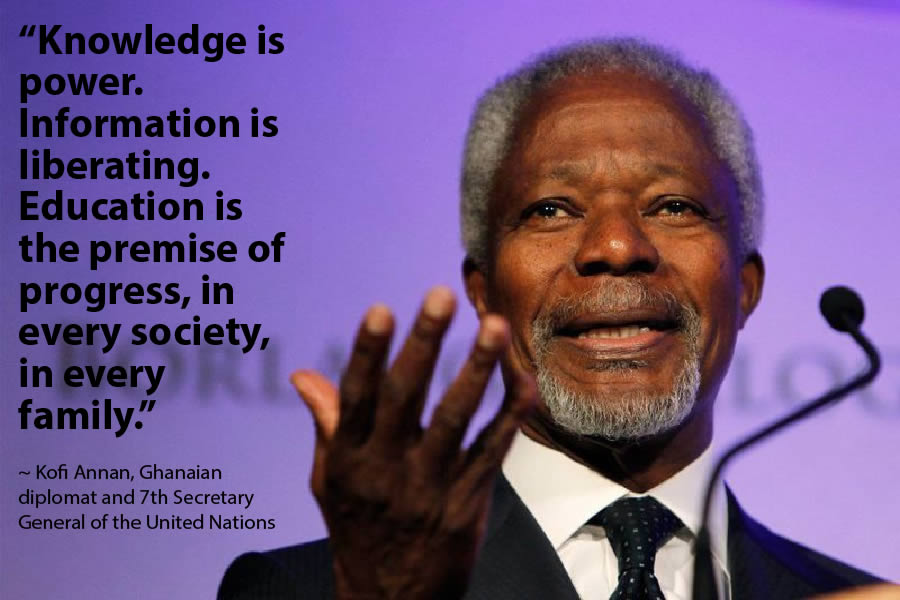
On this International Literacy Day, Kofi’s words continue to ring true.
750 Million Illiterate Adults
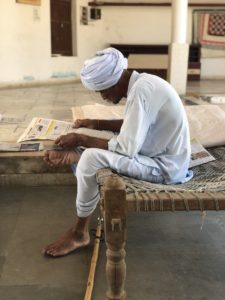 You may not be aware of the statistics for international illiteracy rates. I wasn’t.
You may not be aware of the statistics for international illiteracy rates. I wasn’t.
Read and then think about these statistics:
- Despite the steady rise in literacy rates over the past fifty years, there are still 750 million illiterate adults around the world, most of whom are women.
- If all students in low income countries left school with basic reading skills, 171 million people could be lifted out of poverty, which would be equivalent to a 12% cut in world poverty.
- Most of the world’s illiterate adults live in South Asia, West Asia, and sub-Saharan Africa. The country of Niger has one of the lowest literacy rates with only 19% of the adults being able to read and write.
Illiteracy as Blindness
I wanted to know more about the impact of illiteracy. More than just numbers. The human side of it.
In Sally Armstrong’s book, Uprising: A New Age Is Dawning for Every Mother’s Daughter, she writes, “. . . in Afghanistan, the women refer to their illiteracy as blindness. When I asked them what they meant by that, one woman explained: ‘I couldn’t read, so I couldn’t see what was going on.’ In fewer than a dozen words, she described a system that men in power have relied on for centuries – keep women uneducated so they won’t know what’s going on.”
Women and children in countries across the world are still experiencing this “blindness.”
It goes back to Kofi’s quote: Education is the premise of progress, in every society, in every family. If these women were educated – literate – their society would experience progress.
Books for Africa
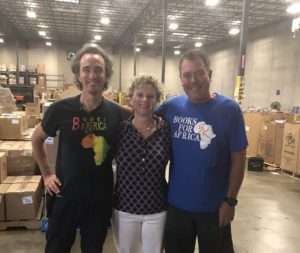
James (L) and Brad (R)
Many organizations around the world are actively working to improve the literacy rate. Books for Africa (link) is one such organization.
After serving with my church this summer at Books for Africa’s Atlanta warehouse, I was curious about the why behind what they do.
“It started when our founder, Tom Warth, visited a school library in Uganda. As a retired book publisher, the bookshelves absent of books upset him. He returned to the States and began sending boxes of books to that library,” Brad Matton, Atlanta Director of Operations shared.
End the Book Famine in Africa
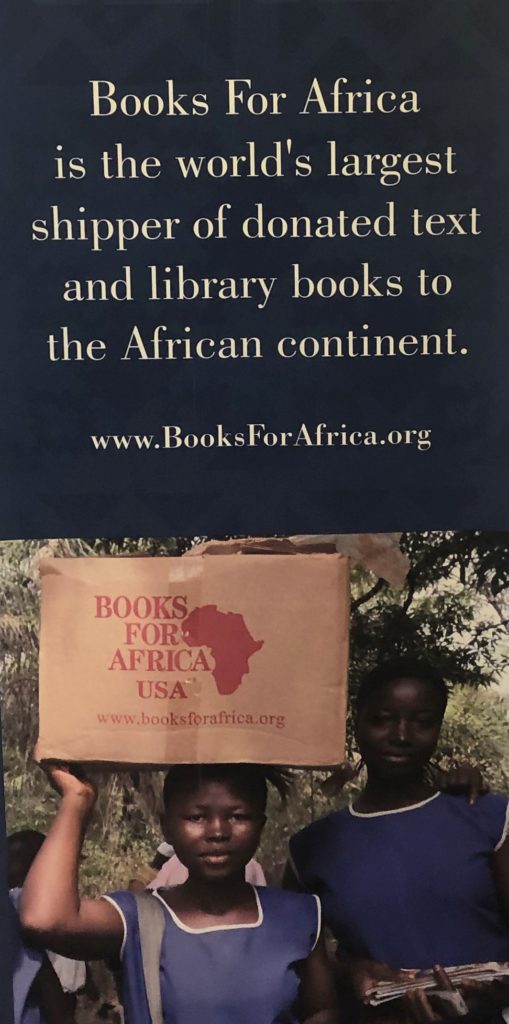 “Books for Africa’s mission is to end the book famine in Africa,” Brad continued.
“Books for Africa’s mission is to end the book famine in Africa,” Brad continued.
Based in St. Paul, Minnesota, Books for Africa has sent over 44 million books to countries in Africa since 1988.
That is an astounding number of books!
“Forty percent of school-aged children in Africa do not attend school. That’s 46 million children,” James Hall, Atlanta Production manager, shared.
The books they are sending are a critical tool in teaching literacy. .
Their hopes of functioning in society, fulfilling their goals, and developing their knowledge would suffer greatly without these books.
Book Donations
“America doesn’t struggle for books. It struggles to value books,” James continued. “America will garbage 322 million books per year. That number is one-third of the African population. ”
Think of the possibilities if even a fraction of those 322 million books were sent to Africa to put on those empty bookshelves.
That’s why Books for Africa is such an important ministry.
Books for Africa accepts book donations from text book publishers, book publishers, school systems, libraries, and medical communities.
And you! If you’re wanting to donate books from your personal library, you can drop them off at the Atlanta warehouse.
Illiteracy Affects You and Me
![]()
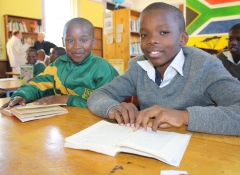
Books for Africa is dedicated to sending as many books as possible. These smiling faces are the reason.
These young men now have the opportunity to overcome the statistics. Maybe, just maybe, illiteracy in their country will be eliminated in their lifetimes!
Illiteracy affects you and me. These young men with their developing literacy skills might just be the ones to discover the cure for HIV/AIDS or design a system to stop terrorism.
We need to give every man, woman, and child the opportunity to learn to read and write.
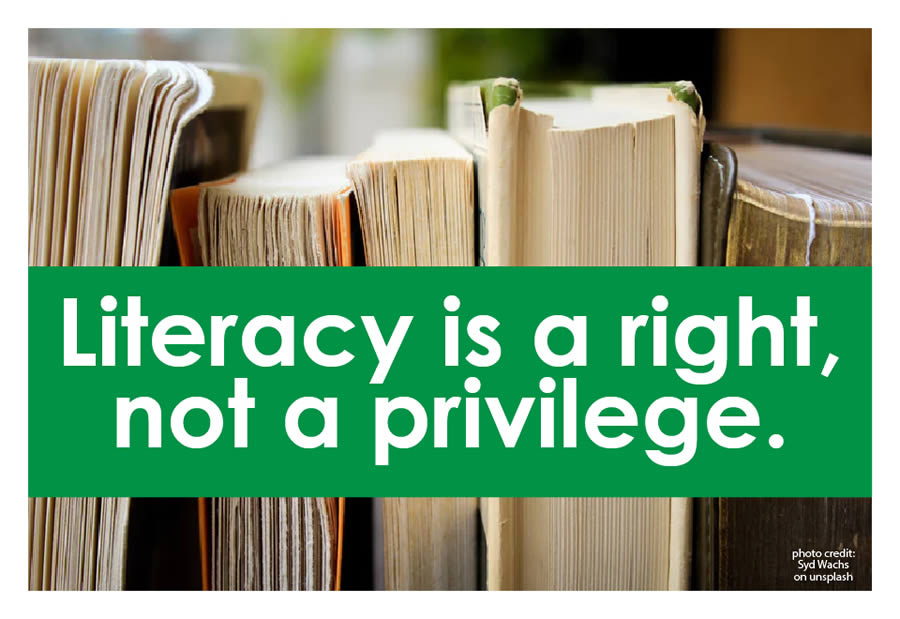
Books for Africa Needs Your Help
Books for Africa’s dedication since 1988 has significantly impacted the literacy rate in Africa, but it needs your help to send more books to Africa.
If you live in the Atlanta area, you can volunteer at their warehouse Monday through Friday from 9:00 a.m. to 3:00 p.m. and on Saturdays from 9:00 a.m. to 2:00 p.m. Volunteer shifts are two hours long.
The Atlanta warehouse is located at 3655 Atlanta Industrial Drive, Bldg. 250 Atlanta, GA 30331.
Monetary donations are needed, too! It costs $10,500 to ship a container of books to Africa. Every dollar donated gives children the opportunity to be literate. If you’d like to make a donation, please click HERE.
Interested in volunteering your time and knowledge to help fund raise? Please contact Brad Matton at 404.603.8680.

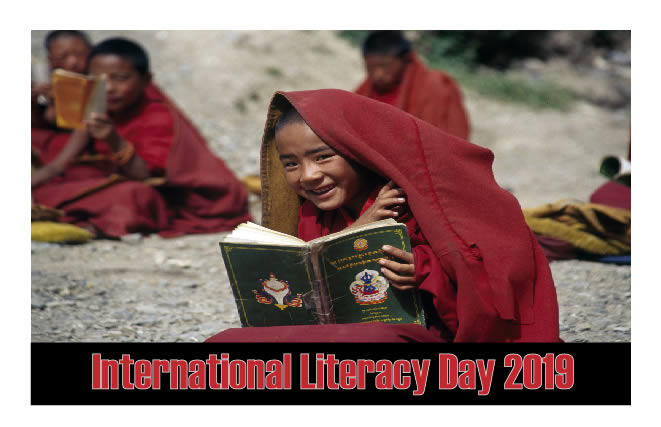
This info is so sad. Something that I take for granted is not even attainable for others. I’m happy to know that some help is being done for Africa.